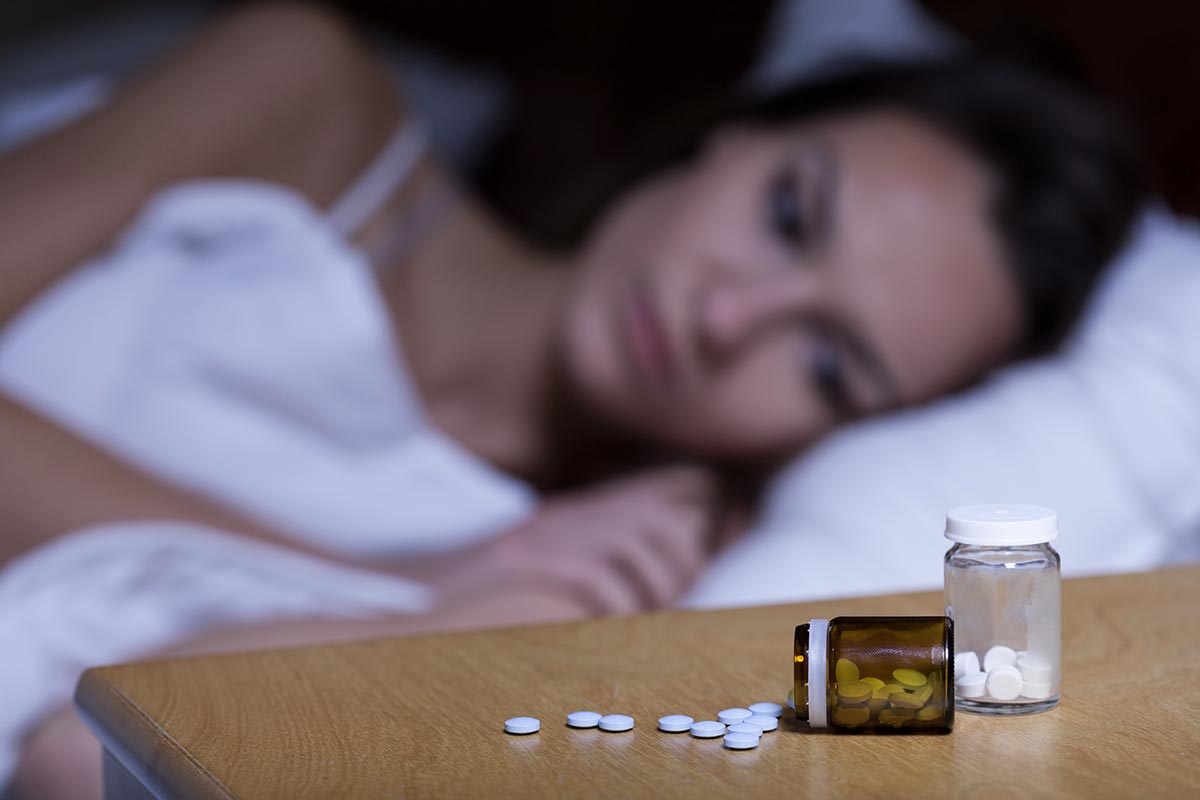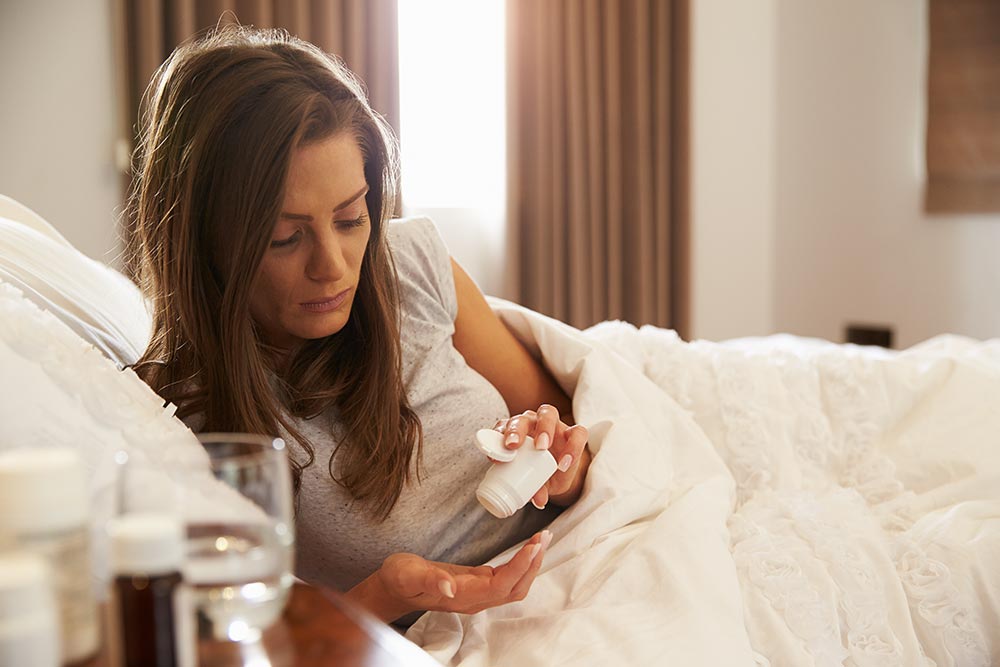Sleeping Pills – History, Use, and Abuse

Sleeping pills, also known as hypnotics or soporific drugs are one of the most common forms of prescription medication in the United States. With over 5% of women and 3.5% of men using prescription sleeping aids, and many more abusing sleeping pills outside of a prescription, sleeping pill use is at an all-time high in the United States. At the same time, more than 42,000 people are hospitalized due to sleeping pill abuse or use each year and many more are addicted, compulsively using more and more of the drug to feel good, to sleep at all, or even to feel normal.
While sleeping pills encompass several drug classes, and many are increasingly regulated by doctors and government following abuse, even prescription use can result in addiction. That's also nothing new, as sleeping pills have a long and controversial history in the United States and the rest of the world.
History of Sleeping Pills
The use of substances as a sleeping aid dates back to ancient times, with records of using anything from alcohol to plants and herbs to facilitate sleep dating back to the earliest origins of records. The birth of the modern sleeping aids dates back to the mid-1800s, when chloral hydrate was first used as a sleeping aid. While the drug had limited sedative properties, chloral hydrate was rapidly adopted and often prescribed for sleeping issues. By the 1900s, barbiturates began to replace chloral hydrate as a stronger and more effective solution. However, with a strong risk of overdose, dependence, and addiction, popularity declined in medical circles until, in the 1970s, quinazolinones and benzodiazepines were introduced as newer, safer alternatives. These drugs, along with newer nonbenzodiazepines, make up the majority of sleeping pills on the market today.
Many other drugs are used off-label as sleeping aids. For example, mirtazapine, clonidine, and diphenhydramine (Benadryl) are all commonly prescribed as a short-term sleeping aid.
Common Usage of Sleeping Pills
Today, an estimated 4% of the American population uses a sleeping aid of some kind, including a benzodiazepine, quinazolinone, or hypnotic alternative. These drugs are intended to combat chronic sleep problems, primarily insomnia, where the user's mental health is affected by their inability to sleep. At the same time, use and abuse of both are rising. With over 9 million prescriptions written for the popular sleeping pill Ambien between 2010 and 2013, and a more than doubling of hospitalizations relating to sleeping pills in the same period
While widely regarded as safer and less addicting or overdose inducing than their predecessor, barbiturates, both drugs have been questioned for safety and efficacy. For example, benzodiazepines have been linked to disturbing sleep architecture, or the body's ability to sleep naturally. Despite that, many psychiatrists and doctors commonly prescribe short and long-term benzodiazepines for sleep problems and insomnia.
While there are dozens of sleeping pills available, some of the most common include Zolpidem (Ambien), zaleplon (Sonata), Escopiclone (Lunesta), and Triazolam.
Effects of Sleeping Pills
Hypnotic and sedative drugs are typically muscle relaxers (benzodiazepines, barbiturates) or similar drugs. This means that they relax the body, causing drowsiness, relaxation, and typically a 'feel-good' high, where the user experiences a light form of euphoria. Stronger sleeping pills like Ambien can cause euphoria and strong hallucinogenic effects if the user remains awake. Most users feel a reduction in anxiety, are able to sleep without dreams, and may have a lack of coordination and dizziness if they remain awake.
Sleeping Pill Abuse
Sleeping pills are abused both as a recreational drug and by users who accidentally become addicted or dependent on the drug.
Recreational - Recreational users typically use Ambien and other sleeping pills to reduce stress or to feel a 'high'. Some also combine it with other drugs or alcohol to increase the high. Here, users will often steal pills from family and friends with a valid prescription, or buy them on the street, where people often sell them for $4-$15 per pill and sometimes more depending on the strength and brand of the drug.
While recreational sleeping pill abuse is common, many users accidentally become 'hooked' through normal usage. This is especially prevalent when prescription users begin taking sleeping pills every night, or every time they have a stressful day or difficulty sleeping. The brain quickly adjusts to Ambien in the system, making it difficult to impossible to sleep without taking a dose. Over time, even the best-intentioned user can find themselves physically dependent and unable to sleep without the drug.
Many users also develop tolerance, where the recommended dose ceases to have the same effect. Persons who avoid going back to their doctor to discuss the problem, often out of fear of having the sleeping aid removed, typically begin taking a higher dose to get the same effect, resulting in increased tolerance and addiction.
Today, most sleeping pills are prescribed for short-term use in combination with therapy or behavioral therapy to attempt to correct the sleep problem. However, some studies estimate that it can take just 1-2 weeks to become physically dependent on the drug with daily use. In some studies, Ambien and other sleeping pills showed a higher potential for abuse, even among non-abusers, than most other drugs.
Sleeping pills were also very commonly prescribed for the long term in the past. It's still not unusual for someone to have had an Ambien or other sleeping pill prescription extending back years or even decades. While many doctors are increasingly aware of the negative and addictive effects of prescription sleeping pills, the process of helping patients through withdrawal and therapy is often too great.
Sleeping Pill Withdrawal
While the exact symptoms of withdrawal from a sleeping pill will heavily depend on the pill, its strength, and the duration and volume of use withdrawal symptoms often follow the same pattern. You can primarily expect rebound insomnia, possibly worse than you were originally treated for, general malaise, and cold or flu symptoms.
In most cases, sleeping pill withdrawal begins within 48 hours of the final dose, resulting in enhanced anxiety, mood swings, irritability or anger, cravings, sweating, tremors or shaking, nausea and vomiting, depression, panic attacks, flushing, delirium, abdominal cramping, rapid respiration, rapid heart rate and palpitations, and in less than 1% of cases, seizures.
Getting Help for a Sleeping Pill Addiction
If you or someone you love is addicted to sleeping pills, there is help available. Simply going 'cold turkey' and quitting the drug often isn't enough to get clean or to recover from a sleeping pill addiction, simply because the drug affects your brain, behavior patterns, and thoughts. A person who is addicted is stuck in a cycle of behavior and thoughts leading them to keep using the drug to cope with stress, to sleep, or to relax and have fun.
Getting help will break this cycle by first taking the user through substance abuse detox to safely remove the drug from their system. Detox typically lasts 1-2 weeks, with some users experiencing more severe symptoms. Rebound insomnia generally lasts weeks or even months after your final dose of the drug. After detox, a treatment center will take you through the process of behavioral therapy and counseling, where you begin to identify the factors behind your addiction and work to learn new behaviors and stress management that will allow you to be happy without substance abuse.
While no one plans to become addicted to a substance, especially not one intended to help a problem, sleeping pills are extremely addictive. Anyone and everyone is susceptible to substance dependence, and eventually to addiction. If you or your loved one needs help, a rehab center can give you the fresh start you need to rebuild and start over without sleeping pills.
If you or your loved one needs help, contact us today and feel free to talk to us about addiction treatment programs at our affordable drug and alcohol rehab that fit your needs. The Anaheim Lighthouse is a modern and effective addiction treatment center in Southern California.














